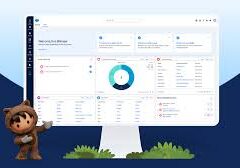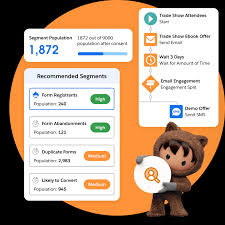Events represent significant investments in marketing endeavors. They require substantial budgets and involve numerous logistical details on the day of execution. In the midst of managing all these fast-moving parts, the last thing you want to worry about is data management. This underscores the importance of adhering to best practices for event management within Salesforce.
Effective event management in Salesforce revolves around utilizing Campaigns. By leveraging Campaigns, you can track event attendance, record budget allocations, and assess costs. Ultimately, Salesforce Campaigns empower you to calculate event ROI by correlating costs with pipeline and revenue outcomes, all within the Salesforce platform.
If you’re new to utilizing Campaigns in Salesforce, consider exploring this guide for a comprehensive overview:
- Customize Campaigns to Suit Your Event Requirements
Enhancing your productivity with Salesforce Campaigns involves tailoring the page layout to align with your specific needs. This customization may include adjusting field placements, creating new custom fields, and determining which components are displayed and how they function.
- Establish a Campaign Hierarchy
Campaign Hierarchies provide a structured approach to linking related Salesforce Campaigns together, organizing them into a hierarchical framework. This arrangement facilitates both reporting and organizational management.
- Utilize Campaign Member Status for Event Participation Tracking
Once individuals have been added to your Campaign, assigning a Member Status to each member allows for precise tracking of event participation.
- Incorporate Leads into Salesforce Campaigns
The process of adding Leads or Contacts to Campaigns depends on the established Campaign hierarchy and the desired status assignments. Mapping out the stages of event engagement and the corresponding Campaigns and statuses is essential for effective data management.
- Harness Campaign Reports for Pre and Post-Event Analysis
Salesforce’s standard reports and dashboards offer valuable insights into Campaign performance, making them indispensable tools for event analysis.
- Evaluate Event Marketing ROI Through Campaign Influence
Measuring ROI on events entails comparing the number of event invitees to those who actively engaged, factoring in event costs. Campaign Influence in Salesforce provides a mechanism for attributing revenue to marketing touchpoints, facilitating comprehensive ROI assessment.
Optimizing event management in Salesforce requires a systematic approach that encompasses customization, hierarchy establishment, status tracking, lead incorporation, report utilization, and ROI evaluation. By following these best practices, you can streamline event management processes and maximize the impact of your marketing efforts.













